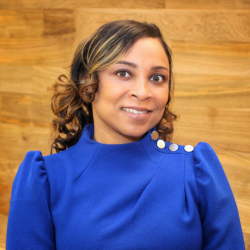When I started working for TNTP several years ago, a few friends raised eyebrows. Won’t people actually working in the school district think you’re just an overpaid, under-experienced consultant?
My first thought was, “That could never be the case with me.”
I was taking on a role in my home city, Memphis, working with the same district I was educated in. There was no way I could ever be perceived as an “outsider.” I’m an insider, after all. I am a black woman working in a deep-south district that primarily serves poor, minority children. My family has been educated in this city for more than five generations. These are my neighbors, my church members, my friends.
But it was naïve of me to assume it would be that simple.
Memphis has been leading the nation in its work to improve the effectiveness of its teacher force and celebrate great teaching. Several years ago, TNTP partnered up with the district to support its work using teacher effectiveness data in its school staffing and teacher retention efforts. Our work here is critical. Three-fourths of kindergartners don’t start school on grade level in our community and only six percent of our students meet the mark for college preparedness when (and if) they graduate.
On one occasion, I worked with a high school principal to identify high-performing teachers and develop a plan to keep them in the classroom for the long haul. While reviewing a roster of teachers together, we stopped at a twelfth grade English teacher whose students had some of the lowest exam scores of anyone in the building, year after year. The principal identified this teacher as “highly effective.”
The teacher in question was active in the community, a club sponsor and got along well with parents, the principal explained. But while these factors helped build a strong school culture, they weren’t helping his students grow or adding to the school’s instructional vision—two points I was quick to fire off.
“You are paid to consult,” the principal responded. “You are here today and will be gone tomorrow. Both me and this teacher will be here for years to come.”
It was the kind of sentiment I heard a lot. “What makes you the expert?”
I wholeheartedly embrace my role as a change agent. But I have found that storming into a district office or school with my understanding of the task at hand, advocating for my solutions without pausing to listen to the folks who have been on the ground, doing the work there for years, doesn’t work so well. The fact is, my plan very well may work, but if I’ve forced it through, the only person likely to invest in that plan will be me.
To change my approach, I had to recognize that this work isn’t just personal for me because my family was educated in these schools. It’s personal for all of us, for one reason or another. Acknowledging the failures of schools we believe in isn’t easy. It wasn’t until I was able to recognize just how hard that can be that I was able to establish truly meaningful relationships with my clients—relationships based on mutual respect and empathy. In the case of the principal above, I realized the response could have been positive had I framed the conversation around something he could relate to and sympathize with, like the impact ineffective teachers have on students.
I’ve learned to trust that my colleagues, clients and peers are all working toward the same outcome: effective teaching and student achievement. Recognizing that those I’m working alongside share my same goal—even if we don’t always see eye to eye on how to get there—doesn’t compromise my ability to advocate for change. It enhances it. Now, I start conversations by focusing on what we share—clarifying our goal, or talking about where the students are now and where we want them to be.
When everyone at the table is invested in a common goal, we can agree to disagree, challenge each other’s thinking and come together to implement aggressive and innovative plans of action. Here in Memphis, the district, community partners, educators and TNTP have built a staffing policy that fosters optimal hiring environments for principals and ensures 100 percent mutual consent between teachers and principals. That wouldn’t have been possible without buy-in from everyone involved.
That question—what makes you the expert?—stuck with me. Does being a hometown girl make me better equipped to solve the education problems in this city? Or am I less credible because I’ve never been a teacher? I don’t know, but it turns out those aren’t the most productive questions to ask. Instead, we should be focusing on the ones that matter: What kind of change do we want see in our schools? What barriers stand in our way? How can we work together to get past them?








